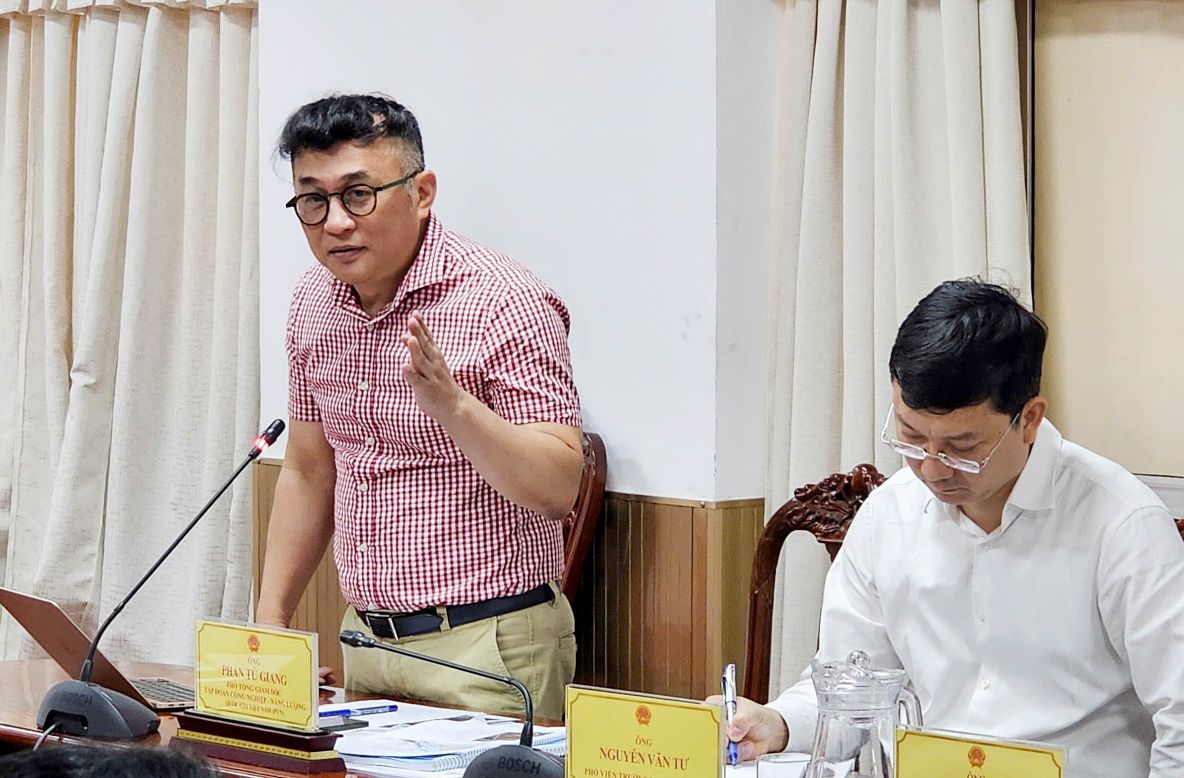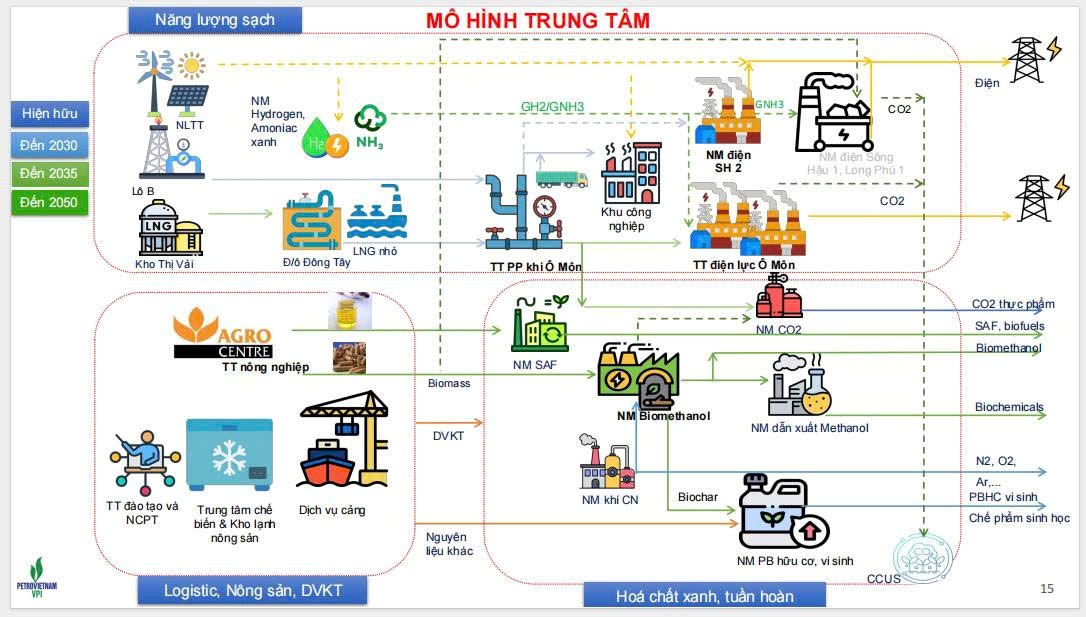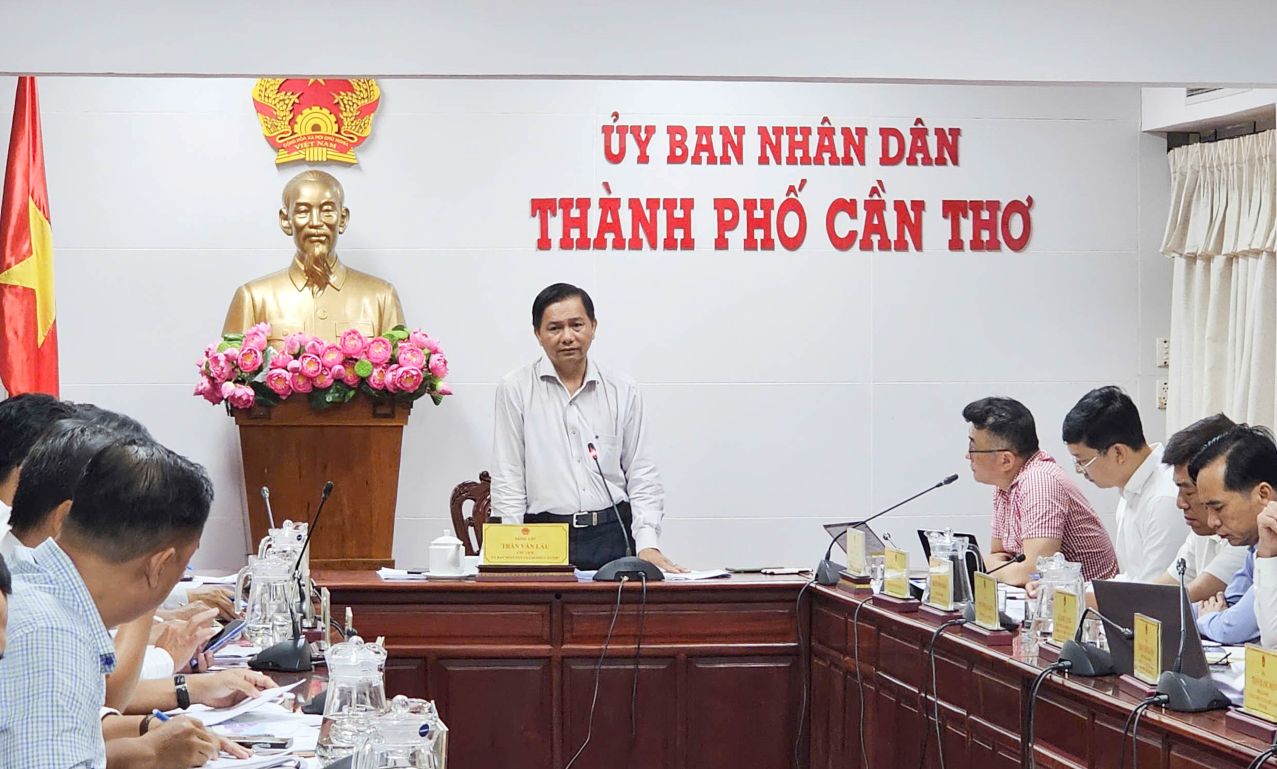On September 15, Mr. Tran Van Lau - Deputy Secretary of the City Party Committee, Chairman of the People's Committee of Can Tho City worked with the Vietnam Oil and Gas Group (PVN) on the construction progress of the PetroVietnam Eco-energy Industrial Center Project in Can Tho City.

According to Mr. Phan Tu Giang - Deputy General Director of PVN, the project is designed as an industrial ecosystem integrating 3 functional clusters: Clean energy, Fertilizer industry - green chemicals and Agriculture, logistics, technical services.
PVN plans to invest more than 19 billion USD in Can Tho by 2050. In particular, by 2030, electricity, gas and agricultural product warehousing projects will be implemented with a capital of 2.9 billion USD, revenue of about 1.6 billion USD/year, and 100 million USD/year will be paid to the budget.
In the period of 2030 - 2035, PVN will expand its LNG warehouse, build a bio-methanol factory, organic fertilizer, SAF and a refrigerated warehouse with a capital of 2 billion USD, revenue of 2.6 billion USD/year, and budget of 232 million USD/year.
By 2050, the group aims to develop offshore wind power, green hydrogen, green ammonia... increasing the total investment capital to more than 19 billion USD, revenue of 7 billion USD/year, contributing 740 million USD/year to the budget.

According to PVN, the project not only ensures national energy security but also opens up a circular industrial - agricultural - energy ecosystem, associated with Can Tho's logistics and science - technology centers; at the same time, creates tens of thousands of jobs, increases budget revenue and promotes sustainable development for the Mekong Delta.

Speaking at the meeting, Chairman of the People's Committee of Can Tho City Tran Van Lau emphasized that the project is in line with the development characteristics of the city after the merger of the newly established Can Tho City when the proportion of agriculture is still high and the production land area is large. The formation of agricultural centers and deep processing factories will help exploit the strengths of river Delta.
Mr. Lau assessed that the project will bring great economic, social and environmental efficiency such as attracting investment, increasing budget revenue, creating more jobs, improving people's lives, raising people's knowledge to contribute to reducing social evils, ensuring energy security and reducing CO2 emissions.
Can Tho City leaders pledged to accompany and create conditions for the project to be implemented soon, contributing to sustainable development for Can Tho and the entire Mekong Delta region.
To make the project feasible, the Chairman of the People's Committee of Can Tho City suggested that PVN closely coordinate with ministries, branches and localities to promptly complete policy mechanisms, land planning, and determine priority items. At the same time, it is necessary to carefully survey the transportation system, river corridors, national highways, expressways and coastal areas, instead of focusing only on the Nam Song Hau route, to find a suitable location for the project.









